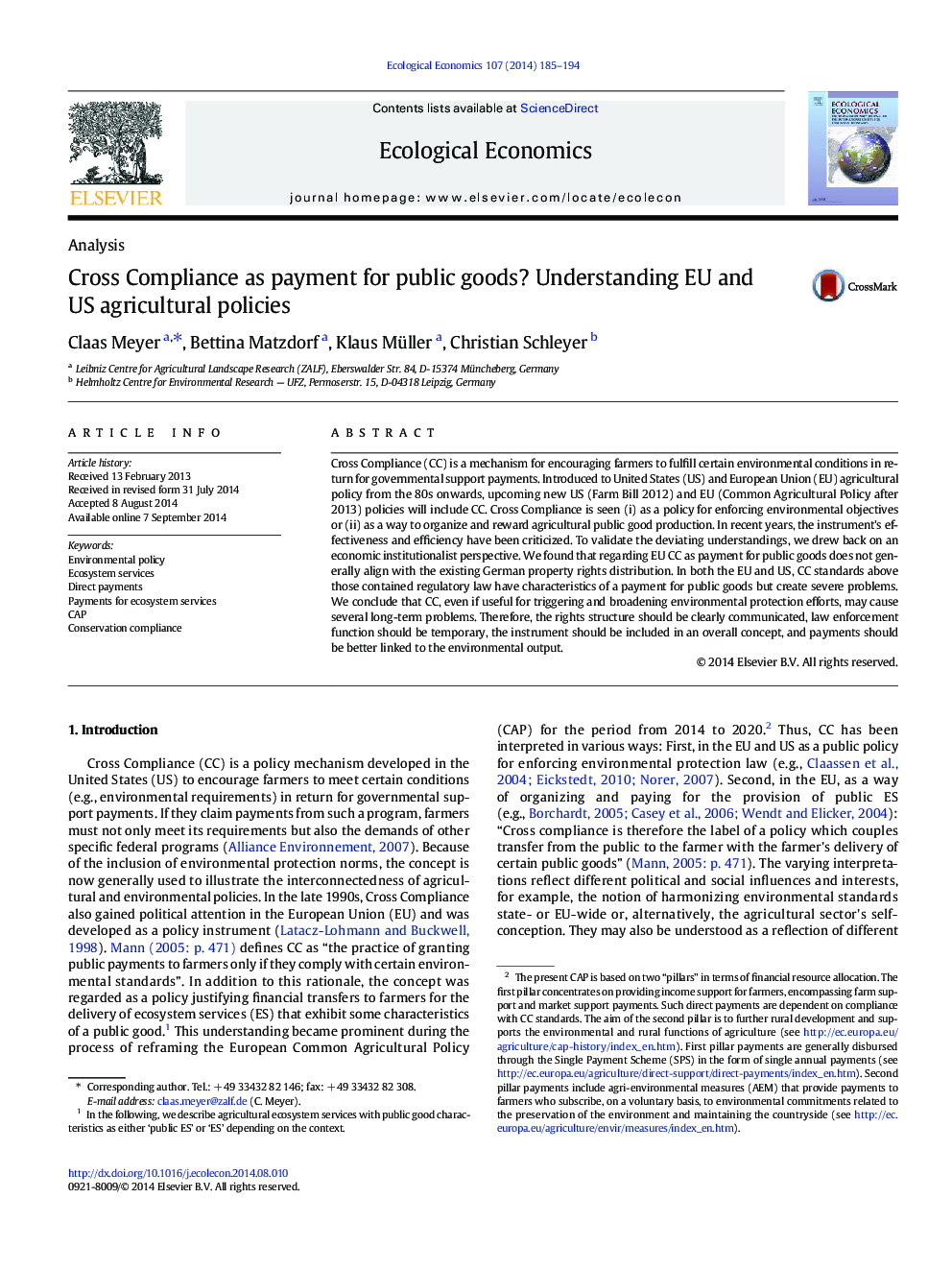| کد مقاله | کد نشریه | سال انتشار | مقاله انگلیسی | نسخه تمام متن |
|---|---|---|---|---|
| 5049515 | 1476372 | 2014 | 10 صفحه PDF | دانلود رایگان |
- We employed institutional economics theory to analyze CC in the EU and US.
- EU CC does not generally align with the German property rights distribution.
- Cross Compliance may have characteristics of a payment for public ES.
- Cross Compliance may cause important changes in institutions and values.
- Cross Compliance for short-term compliance but not for long-term ES security.
Cross Compliance (CC) is a mechanism for encouraging farmers to fulfill certain environmental conditions in return for governmental support payments. Introduced to United States (US) and European Union (EU) agricultural policy from the 80s onwards, upcoming new US (Farm Bill 2012) and EU (Common Agricultural Policy after 2013) policies will include CC. Cross Compliance is seen (i) as a policy for enforcing environmental objectives or (ii) as a way to organize and reward agricultural public good production. In recent years, the instrument's effectiveness and efficiency have been criticized. To validate the deviating understandings, we drew back on an economic institutionalist perspective. We found that regarding EU CC as payment for public goods does not generally align with the existing German property rights distribution. In both the EU and US, CC standards above those contained regulatory law have characteristics of a payment for public goods but create severe problems. We conclude that CC, even if useful for triggering and broadening environmental protection efforts, may cause several long-term problems. Therefore, the rights structure should be clearly communicated, law enforcement function should be temporary, the instrument should be included in an overall concept, and payments should be better linked to the environmental output.
Journal: Ecological Economics - Volume 107, November 2014, Pages 185-194
